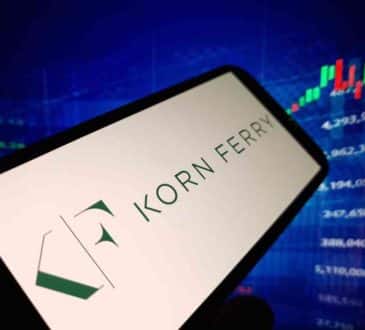Beyond the Classroom: The Rising Importance of STEM for All Students

Many who have read my previous writings on the importance of STEM education and its role in developing key competencies for students have posed an insightful question: Is STEM learning truly for all young minds embarking on their educational journey, or solely those intending to enter scientific and technical domains? To address this common query and provide evidence that STEM cultivates a transferable way of thinking with implications far beyond the classroom, connecting strongly to our world, job market, and trajectory, I have written the following article. Within these pages, I hope to demonstrate how a grounding in science, technology, engineering, and math equips all youth with future-ready problem-solving skills and an innovative mindset applicable universally, regardless of their intended career path. It is my aim to shine a light on STEM not just as a subject area but as a philosophy and approach to comprehensive preparation for an uncertain tomorrow. I trust that unpacking STEM’s far-reaching influence in this manner will offer valuable perspective and insights for all invested in optimal learner development.
So, while STEM education was traditionally regarded mainly as a route gravitating those passionate about scientific and technological disciplines, the landscape of the current job market highlights its increasing importance for all learners. In this era of relentless change, the competencies nurtured through STEM experiences are progressively core for students entering the dynamic work arena. Looking beyond strictly scientific, computational, or engineering vocations, the STEM philosophy endows youth with a versatile skill set applicable to thrive across many diverse occupational domains and retain employability through looming unknowns. No longer a narrow pathway, STEM in today’s rapidly transforming world provides a rich general preparation equipping young minds with the problem-solving, innovative, and adaptive mindset crucial for continued success in a complex, technology-driven global society undergoing continuous disruption.
- Critical thinking lies at the heart of STEM education. Students are challenged to carefully observe phenomena and identify the root issues or variables at play. This helps them learn to break down large, multifaceted problems into manageable components that can be addressed step-by-step.
By formulating hypotheses about potential relationships between factors, STEM cultivates analytical skills for conceptualizing different perspectives on complex questions that have no straightforward answers. Making informed predictions allows for testing concepts systematically.
When hypotheses lead to unexpected outcomes, STEM encourages students to persevere through iterative experimentation. Not being afraid to fail teaches the valuable lesson that the most effective solutions often emerge from a process of trial and error.
Through such structured methodologies, students hone their ability to comprehend detailed information objectively and identify logical patterns. Over time, these competencies help foster the mental flexibility needed to assess different viewpoints on challenging issues.
As contemporary careers continue to evolve rapidly, being adept at problem identification, research, and systematic innovation will be in high demand across diverse fields. STEM equips young minds with the analytical mindset required to constantly adapt knowledge and stay relevant in our technology-driven world. - By empowering students as expert problem solvers, STEM lays an essential foundation for long-term success both within scientific domains as well as beyond traditional classroom boundaries. Its benefits will transfer to any career tested by multifaceted challenges.
- By harnessing creative potential through practical learning models, STEM nurtures the innovation competencies of tomorrow’s problem solvers. Students embark on a journey that begins with comprehending the needs of users and stakeholders. From this foundational understanding, their minds then explore a wide range of possible design concepts through ideation-focused activities like brainstorming. With ideas in hand, they enter a phase of testing and building initial prototypes. Continuous refinement based on measured results is key as learners iterate toward stronger solutions. In this way, STEM cultivates the experimental mindset that drives progress, instilling confidence to visualize new possibilities and pursue and evolve promising ideas through applied learning experiences. This fosters lifelong capacity for the imaginative and critical thinking essential to contributing future advances across diverse fields.
Being exposed to open-ended problems without a single correct answer encourages divergent, outside-the-box solutions. This helps expand flexible, early-stage thinking and take risks with new perspectives. Brainstorming sessions foster the collaborative mindset essential to great breakthroughs. - By building low-fidelity prototypes rapidly, students learn that innovation is an iterative process. Seeing how designs can be improved through empirical user testing and failure builds resilience and tenacity when tackling ambitious challenges.
Learning structure while still empowering imagination equips students with entrepreneurial mindsets ready to change the status quo. They gain confidence in applying creative skills to conceptualize novel business ventures or push innovations within major corporations.
As modern economies increasingly prioritize startup growth, the ability to spot opportunities and drive paradigm shifts through disruptive technologies will prove indispensable across economic sectors. STEM ensures youth gain these metacognitive competencies demanding creativity as a driver of future progress. - Teamwork forms the very foundation upon which advances in science are built. STEM education appropriately emphasizes the importance of collaboration through hands-on, project-based learning that involves substantive cooperation between peers. Whether designing experiments, engaging in research initiatives, or engineering innovative solutions, meaningful progress can only be made when individuals with differing perspectives, backgrounds, and skills work interdependently. By dividing complex undertakings into specialized roles that leverage everyone’s unique talents, students develop the capacity to tackle ambitious challenges through a united effort. While discovering one’s own strengths, they also gain exposure to diverse methodologies by supporting teammates, and collectively achieving goals beyond the scope of solitary efforts. This immersive collaborative experience thus lays the groundwork for productive partnerships that will drive problem-solving far into students’ careers.
Frequent presentations empower students to clearly articulate complex technical topics using examples, diagrams, and other multimedia methods. Receiving feedback further refines the ability to explain perspectives succinctly. - Listening skills emerge through consideration of alternative viewpoints within teams. Students appreciate that diverse backgrounds and problem-solving styles can synergize instead of divide when discussions are governed by rules of respect and compromise.
As the modern workplace trends increasingly towards interdisciplinary collaborations, strong soft skills will prove ever more crucial. Through immersive STEM experiences, youth gain a formative foundation for deftly contributing as cooperative team players focused on common goals. - Being able to adapt gracefully to shifting circumstances lies at the very core of maintaining long-term career resilience within our rapidly innovating world. STEM education meaningfully cultivates flexibility through open-inquiry approaches undefined by any single conclusive answer. When grappling with multifaceted issues mirroring real life’s complexity, students discover there exist numerous potential avenues toward workable resolutions. This exposes young minds to the necessity of maintaining an agile orientation receptive to pursuing alternative strategies as conditions evolve. Through non-linear assignments promoting diverse solutions, STEM equips learners with the mental nimbleness critical for rolling with technological alterations and occupational transitions. It is this adaptive competency cultivated early on that safeguards careers against disruption, empowering lifelong job stability and professional evolution within uncertain climates.
Students become accustomed to seeking answers through ongoing research and using prior knowledge in innovative combinations responsive to new information. This agility in knowledge application prepares minds for lifelong learning even beyond conventional education systems. Learning extends beyond basics into exploring uncharted domains, cultivating curiosity and willingness to learn cutting-edge techniques rapidly as needs demand.
Rigorous yet experiential STEM grounding endows youth with a level of comfort in navigating unfamiliar technological terrain. This mental dexterity allows smoothly transitioning job roles and industries as emerging fields disrupt old paradigms.
When STEM education is a top priority for all learners, students develop a skill set that allows them to nourish prosperous careers and progress society continuously into the future. A background grounded in STEM principles nurtures transversal thinking patterns instrumental for achieving ongoing occupational success as globalization accelerates and work environments undergo relentless flux. With flexible, creative, analytical, and collaborative mindsets established early on, graduates of STEM-focused schooling emerge prepared to propel innovation waves and tackle emergent issues coming over corporate, research, and community landscapes for decades to come. By prioritizing STEM across student populations, schools lay a foundation empowering all to flourish amid complexity.
Have you read?
World’s Most Influential and Innovative Companies.
World’s Best Hospitality And Hotel Management Schools.
The world’s top 50 most popular luxury brands for 2023.
Richest Tennis Players In The World.
Richest Actors In The World.
Add CEOWORLD magazine to your Google News feed.
Follow CEOWORLD magazine headlines on: Google News, LinkedIn, Twitter, and Facebook.
Copyright 2024 The CEOWORLD magazine. All rights reserved. This material (and any extract from it) must not be copied, redistributed or placed on any website, without CEOWORLD magazine' prior written consent. For media queries, please contact: info@ceoworld.biz








